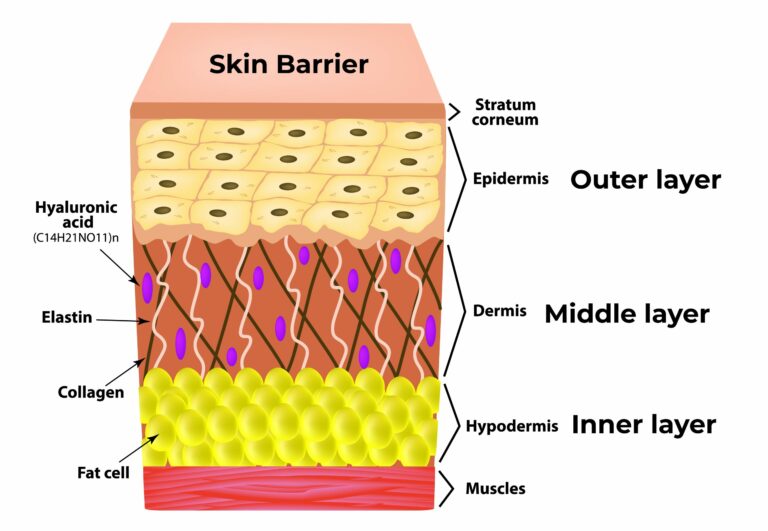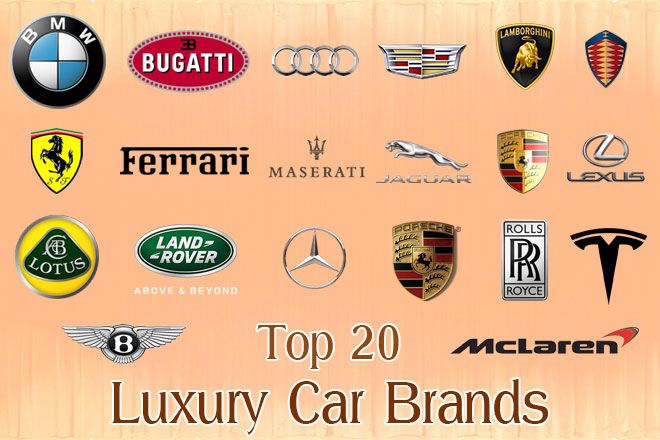Best Car Motor Oil Brand: A Comprehensive Guide to Engine Longevity
Best Car Motor Oil Brand: A Comprehensive Guide to Engine Longevity cars.truckstrend.com
The pulsating heart of any vehicle is its engine, a complex marvel of engineering that relies on precision, power, and, above all, proper lubrication. At the core of this lubrication system lies motor oil, often considered the lifeblood of your car. Choosing the "best" car motor oil brand isn’t merely about picking a name off a shelf; it’s a critical decision that profoundly impacts your engine’s performance, efficiency, and longevity. This comprehensive guide will demystify the world of motor oils, helping you understand what makes a brand "best" for your specific vehicle and driving needs.
Understanding Motor Oil: More Than Just a Lubricant
Best Car Motor Oil Brand: A Comprehensive Guide to Engine Longevity
Before we delve into specific brands, it’s crucial to grasp the fundamental roles motor oil plays within your engine. It’s far more than just a slippery substance; it’s a sophisticated engineered fluid designed to perform multiple vital functions:
- Lubrication: This is its primary role. Motor oil creates a thin film between moving metal parts (pistons, crankshaft, camshaft, valves) to reduce friction and wear. Without this film, metal-on-metal contact would quickly lead to catastrophic engine failure.
- Cooling: As engine parts move, they generate immense heat. Oil circulates throughout the engine, absorbing heat from critical components and carrying it away, helping to regulate overall engine temperature.
- Cleaning: Modern motor oils contain detergents and dispersants that prevent the buildup of sludge, varnish, and carbon deposits. Detergents clean existing deposits, while dispersants hold contaminants in suspension until they can be removed during an oil change.
- Sealing: Oil helps to seal the gap between the piston rings and cylinder walls, preventing combustion gases from escaping into the crankcase and maintaining compression for optimal power.
- Corrosion Protection: Engine components are made of various metals that can corrode when exposed to moisture and combustion byproducts. Motor oil contains rust and corrosion inhibitors to protect these vital parts.
- Noise Reduction: By lubricating components, oil also helps to quiet the operation of the engine, reducing clatter and friction-related noises.

The "best" motor oil, therefore, excels in all these functions, maintaining its integrity under extreme temperatures and pressures, and protecting your engine for thousands of miles.
Types of Motor Oil: Choosing the Right Foundation
Motor oils are broadly categorized by their base stock and additive packages. Understanding these types is the first step in making an informed decision.
-
Conventional (Mineral) Oil:
- Description: Derived directly from crude oil and refined to remove impurities. It’s the most basic and least expensive type of motor oil.
- Pros: Affordable, suitable for older engines designed for conventional oil, adequate for light-duty driving and regular oil change intervals.
- Cons: Less stable under extreme temperatures, breaks down faster, offers less protection against wear and deposits compared to synthetics.
- Best Use: Older vehicles with simple engine designs, or those on a very tight budget with frequent oil changes.
-
Synthetic Blend (Semi-Synthetic) Oil:
- Description: A mix of conventional and synthetic base oils, combined with a robust additive package.
- Pros: Offers enhanced protection and performance over conventional oil at a more accessible price point than full synthetic. Better cold-start protection and high-temperature stability.
- Cons: Doesn’t offer the full benefits of a 100% synthetic oil.
- Best Use: A good compromise for drivers who want better protection than conventional oil but aren’t ready for the cost of full synthetic, or for vehicles transitioning from conventional to synthetic.
-
Full Synthetic Oil:
- Description: Engineered from scratch using advanced chemical processes, resulting in highly pure and uniform molecules. This allows for superior performance characteristics.
- Pros: Exceptional resistance to temperature extremes (hot and cold), superior protection against wear, sludge, and deposits, extended drain intervals possible, improved fuel economy in some cases. Ideal for modern, high-performance, or turbocharged engines.
- Cons: Most expensive option.
- Best Use: Virtually all modern vehicles, high-performance cars, vehicles operating in extreme climates, drivers seeking maximum engine protection and longevity, or those wanting extended oil change intervals.
-
High-Mileage Oil:
- Description: Typically a synthetic blend or full synthetic formulation with special additives designed for vehicles with over 75,000 miles.
- Pros: Contains seal conditioners to prevent and reduce oil leaks, extra detergents to clean up deposits in older engines, and enhanced anti-wear additives.
- Cons: May not be necessary for well-maintained high-mileage engines without specific issues.
- Best Use: Older vehicles exhibiting minor oil leaks, burning oil, or developing sludge, to help extend their life.
Deciphering Motor Oil Specifications: What the Labels Mean
Understanding the labels on an oil bottle is crucial for selecting the right product.
-
Viscosity Grades (e.g., 5W-30):
- This is arguably the most important specification. The "W" stands for "winter" and indicates the oil’s viscosity (thickness) at low temperatures. The lower the number before the "W" (e.g., 0W, 5W), the thinner the oil is in cold weather, allowing for easier cold starts and quicker lubrication.
- The second number (e.g., 30, 40) indicates the oil’s viscosity at normal operating temperatures (100°C). A higher number means a thicker oil at operating temperature, which can provide more protection under heavy loads but might slightly reduce fuel efficiency.
- Actionable Insight: Always follow your vehicle manufacturer’s recommended viscosity, found in your owner’s manual.
-
API Service Categories (e.g., SN PLUS, SP):
- The American Petroleum Institute (API) sets performance standards. "S" categories are for gasoline engines (e.g., SA, SB, SC… SN, SP), and "C" categories are for diesel engines.
- Newer categories supersede older ones (e.g., SP supersedes SN PLUS, which superseded SN). A higher letter indicates more stringent tests and better performance in areas like deposit control, wear protection, and oxidation resistance.
- Actionable Insight: Look for the latest API "starburst" symbol on the bottle, indicating it meets current performance standards for your gasoline engine. As of writing, API SP is the latest standard, offering enhanced protection against LSPI (Low-Speed Pre-Ignition) and timing chain wear.
-
ILSAC GF-6:
- The International Lubricant Standardization and Approval Committee (ILSAC) works with API to develop fuel economy standards. GF-6A (for traditional viscosity grades like 5W-30) and GF-6B (for lower viscosity grades like 0W-16) are the latest standards.
- Actionable Insight: Oils meeting ILSAC GF-6 offer improved fuel economy, engine protection, and compatibility with modern engine technologies.
-
OEM Approvals (e.g., Dexos, MB-Approval, VW 504 00/507 00):
- Many vehicle manufacturers (OEMs) have their own specific oil specifications that go beyond general API/ILSAC standards. These are tailored to the unique demands of their engines, especially for turbocharged, direct-injection, or high-performance models.
- Actionable Insight: If your owner’s manual specifies an OEM approval (e.g., GM’s Dexos1 Gen2/Gen3, BMW LL-01, Mercedes-Benz 229.5), prioritize oils that explicitly state they meet that approval. This ensures optimal protection and performance as intended by the manufacturer.
Factors Influencing Your "Best" Choice
The "best" car motor oil brand isn’t a universal truth; it’s a highly personalized choice based on several factors:
- Vehicle Manufacturer’s Recommendation: This is paramount. Your owner’s manual is the definitive guide, specifying the correct viscosity grade, API service category, and any required OEM approvals. Deviating from this can void your warranty or cause engine damage.
- Driving Habits:
- Stop-and-Go City Driving: Puts more stress on oil due to frequent temperature fluctuations. A robust synthetic oil is beneficial.
- Heavy Towing/Hauling: Requires oil with excellent high-temperature stability and shear strength.
- Performance Driving/Racing: Demands premium full synthetics engineered for extreme conditions.
- Light Highway Driving: Less demanding, but still benefits from quality oil.
- Climate:
- Cold Climates: Low "W" viscosity (e.g., 0W-XX, 5W-XX) is crucial for easy cold starts and rapid lubrication.
- Hot Climates: Oil needs excellent high-temperature stability to prevent thinning and breakdown.
- Engine Age and Condition:
- New Engines: Benefit most from full synthetics that meet the latest OEM and industry standards.
- Older Engines (pre-2000s): May be designed for thicker conventional oils, though many can transition to synthetics if carefully monitored.
- High-Mileage Engines: Consider high-mileage formulations to address common issues like leaks and deposits.
- Budget: While cost is a factor, consider motor oil an investment in your engine’s longevity. Premium oils often pay for themselves through extended engine life, better fuel economy, and longer oil change intervals.
Top Contenders for "Best Car Motor Oil Brand" (and Why)
While personal preference and specific vehicle requirements dictate the ultimate "best," certain brands consistently rank high due to their quality, innovation, and broad range of products.
- Mobil 1: Often considered a pioneer in full synthetic motor oil, Mobil 1 is a benchmark for performance and protection. It’s widely recommended by OEMs (e.g., Porsche, Corvette) and is known for its excellent cold-weather performance, high-temperature stability, and extended drain capabilities. Their product lines (e.g., Extended Performance, ESP, Annual Protection) cater to diverse needs.
- Castrol: A global leader with a long history, Castrol offers a vast portfolio from conventional to high-end synthetics. Their EDGE line (full synthetic) is popular for modern engines, offering strong fluid titanium technology for film strength. Castrol GTX is a well-regarded conventional/synthetic blend for everyday driving. They also have strong OEM partnerships (e.g., BMW, VW).
- Pennzoil: Known for its "PurePlus" technology, which converts natural gas into high-quality synthetic base oil. This results in very clean base oils, leading to excellent engine cleanliness and protection against sludge and deposits. Pennzoil Platinum and Ultra Platinum are highly regarded full synthetics.
- Valvoline: One of the oldest oil brands, Valvoline has a reputation for reliability and innovation, particularly with its "MaxLife" high-mileage oil, which is a popular choice for older vehicles. They also offer excellent full synthetics (SynPower) and conventional oils.
- Royal Purple: A premium brand favored by enthusiasts and those seeking maximum performance. Royal Purple oils are known for their proprietary Synerlec additive technology, which significantly reduces friction and wear, often leading to slight horsepower and fuel economy gains. It’s on the pricier side but delivers exceptional protection.
- Amsoil: A direct-to-consumer brand known for its emphasis on extended drain intervals and specialized formulations. Amsoil oils are often touted for their superior wear protection and stability, making them a choice for those seeking to push oil change intervals or demanding ultimate protection.
Practical Advice: How to Choose and Use Motor Oil
- Consult Your Owner’s Manual FIRST: This cannot be stressed enough. It’s the ultimate authority on the correct oil type, viscosity, and specifications for your vehicle.
- Consider Your Driving Conditions: If you drive under severe conditions (extreme temperatures, heavy loads, frequent short trips, dusty environments), opt for a higher-quality synthetic oil, even if your manual permits conventional.
- Adhere to Oil Change Intervals: Follow your manufacturer’s recommended oil change schedule. If you use full synthetic oil, you might be able to extend intervals, but always verify with your owner’s manual or consider used oil analysis for precise data.
- Don’t Mix Oil Types (Generally): While not immediately catastrophic, mixing conventional and synthetic oils dilutes the benefits of the synthetic. It’s best to stick to one type. Mixing different brands of the same type (e.g., two different brands of 5W-30 full synthetic) is generally acceptable as long as they meet the same specifications, but consistency is preferred.
- Check Oil Levels Regularly: Even the best engines can consume a small amount of oil. Check your oil level at least once a month, and before long trips. Top off as needed with the same type and brand of oil.
- Proper Disposal of Used Oil: Never pour used motor oil down drains or into the ground. It’s a hazardous waste. Most auto parts stores, service stations, and recycling centers accept used oil for free.
Potential Challenges and Solutions
- Choosing the Wrong Oil: Using the wrong viscosity can lead to increased engine wear (too thin) or reduced fuel economy and poor cold starting (too thick). Using an oil that doesn’t meet API/ILSAC or OEM specs can lead to premature engine wear, sludge buildup, or even issues like LSPI in modern engines.
- Solution: Double-check your owner’s manual. When in doubt, consult a certified mechanic or the dealership.
- Extended Drain Intervals: While full synthetics allow for longer intervals, blindly extending them without understanding your engine’s specific conditions or performing oil analysis can be risky.
- Solution: Stick to OEM recommendations initially. For true extended intervals, consider a professional used oil analysis service (e.g., Blackstone Labs) which can tell you the oil’s remaining life and your engine’s health.
- Counterfeit Oils: The market for fake motor oil exists, especially online. These oils can cause severe engine damage.
- Solution: Purchase oil from reputable retailers, authorized dealerships, or well-known auto parts stores. Be wary of unusually low prices or suspicious packaging.
- Oil Consumption in Older Engines: It’s normal for older engines to consume some oil. However, excessive consumption (e.g., more than a quart every 1,000-2,000 miles) could indicate worn seals, rings, or valve guides.
- Solution: First, switch to a high-mileage oil. If consumption persists, consult a mechanic to diagnose and repair the underlying issue.
Table Price Containing Complete Information about Best Car Motor Oil Brand
Disclaimer: Prices are approximate and highly variable based on region, retailer, sales, and specific product line (e.g., 1-quart vs. 5-quart jug). This table provides a general guide to typical positioning.
| Brand | Typical Oil Type(s) Offered | Key Benefit / Focus | General Price Range (per 5-quart jug) |
|---|---|---|---|
| Mobil 1 | Full Synthetic, Synthetic Blend | Performance, Extended Protection, OEM Endorsements | $$$ (Premium) |
| Castrol | Full Synthetic, Synthetic Blend, Conventional | Broad Range, Strong OEM Ties, Fluid Strength (EDGE) | $$ – $$$ (Mid-Range to Premium) |
| Pennzoil | Full Synthetic, Synthetic Blend, Conventional | Engine Cleanliness, Purity (PurePlus Tech) | $$ – $$$ (Mid-Range to Premium) |
| Valvoline | Full Synthetic, Synthetic Blend, Conventional, High-Mileage | Engine Longevity, High-Mileage Expertise (MaxLife) | $$ (Mid-Range) |
| Royal Purple | Full Synthetic (Premium) | Friction Reduction, Performance Gains, Racing Focus | $$$$ (Ultra-Premium) |
| Amsoil | Full Synthetic (Specialty) | Extended Drain Intervals, Superior Wear Protection | $$$$ (Ultra-Premium, often D2C) |
| Quaker State | Full Synthetic, Synthetic Blend, Conventional | Everyday Protection, Good Value, Sludge Protection | $ – $$ (Budget to Mid-Range) |
| Shell Rotella | Conventional, Synthetic Blend, Full Synthetic | Heavy Duty Diesel & Gasoline Engines, Durability | $$ (Mid-Range) |
Price Key:
- $: ~$15-25
- $$: ~$25-35
- $$$: ~$35-50
- $$$$: ~$50+
Frequently Asked Questions (FAQ)
Q1: Can I switch between conventional and synthetic oil?
A1: Yes, in most modern engines, you can safely switch between conventional, synthetic blend, and full synthetic oils. There’s no scientific basis for claims that synthetic oil causes leaks in older engines (it doesn’t "eat" seals). In fact, synthetic oil’s superior cleaning properties might uncover existing leaks by dissolving sludge that was temporarily sealing them.
Q2: How often should I change my oil?
A2: Always follow your vehicle manufacturer’s recommendation in the owner’s manual. This varies greatly by vehicle, driving conditions, and oil type, typically ranging from 5,000 to 10,000 miles, or annually, whichever comes first. Using full synthetic oil may allow for longer intervals, but consult your manual or consider oil analysis.
Q3: What’s the difference between 5W-30 and 10W-30?
A3: Both oils have a viscosity of 30 at operating temperature. The difference lies in their cold-weather performance. 5W-30 is thinner at low temperatures than 10W-30, meaning it flows more easily during cold starts, providing quicker lubrication and better protection in colder climates. Always use the viscosity recommended by your manufacturer.
Q4: Does synthetic oil cause leaks in older engines?
A4: No, synthetic oil does not cause leaks. If an older engine starts leaking after switching to synthetic, it’s usually because the synthetic oil’s superior cleaning agents have dissolved sludge and deposits that were previously "sealing" minor leaks. The seals were already compromised; the synthetic merely revealed the issue.
Q5: What if my car recommends conventional but I want to use synthetic?
A5: You can almost always upgrade to synthetic oil, even if your car recommends conventional. Synthetic oil offers superior protection, especially in extreme temperatures or under heavy loads. It will not harm your engine and will likely provide better long-term protection.
Q6: Is it okay to mix different brands of oil?
A6: While generally not recommended as a regular practice, mixing different brands of the same type and specification (e.g., two different brands of 5W-30 full synthetic that both meet API SP) for a top-off is usually fine. However, for a full oil change, it’s best to stick to a single brand and type to ensure the additive packages work synergistically.
Concluding Summary
The quest for the "best" car motor oil brand ultimately leads back to a singular, vital principle: informed choice. There isn’t one universal best brand, but rather a best fit for your specific vehicle, driving conditions, and budget. By understanding the different types of oil, deciphering the labels, and prioritizing your vehicle manufacturer’s recommendations, you empower yourself to make a decision that directly contributes to the health, performance, and longevity of your engine. Motor oil is an investment, not just an expense, and choosing wisely ensures that the heart of your vehicle continues to beat strong for many miles to come.



